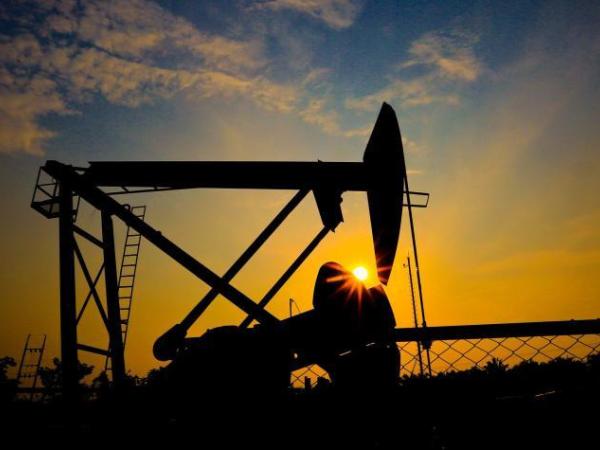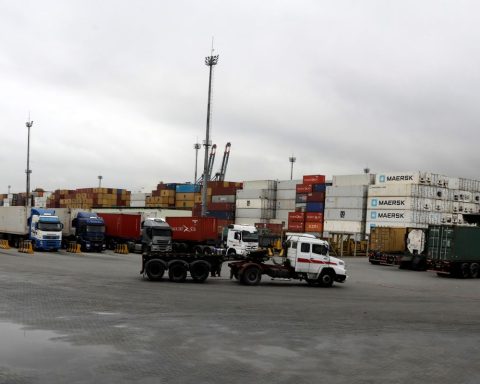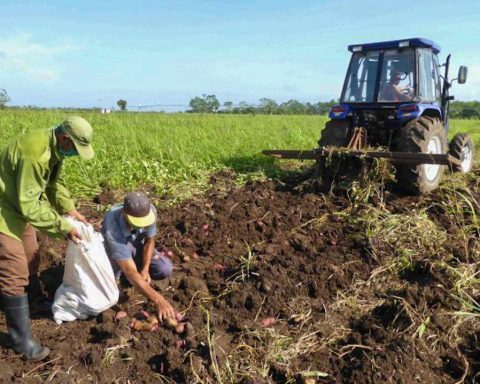The end of a year in which uncertainty prevailed over the electoral process and the start of a left-wing government, distant in terms of ideological to all those who have preceded him.
the last four monthsIn particular, they have been in recognition of the scope of the campaign promises, of the government team, of the priorities and legislative dynamics.
Sufficient time to better understand what seems to await the country in the coming years, the energy sector and, especially, to the oil and natural gas industry.
1. Compliance with the investment program. For 2022, the companies budgeted investments of US$1.1 billion in exploration and US$3.3 billion in productionan increase of 42% compared to 2021.
This shows an important rearing of the head after the pandemic hit. preliminary data indicate that the investment program will be fulfilled: of 60 planned exploratory wells, 55 have been drilled.
(See: Oil rose more than 3% driven by falling inflation).
2. Promising offshore discoveries. The last three months have been good news for gas.
existence was confirmed of significant volumes of hydrocarbon offshore, in the Uchuva 1 and Gorgon 2 wells, led by Ecopetrol Shell and Petrobras. These indicate that it could be a gas province of international stature and add to the previous offshore exploratory success Orca 1, Kronos 1, Purple Angel 1 and on dry land in the local Caribbean.
3. Extraordinary income for the State. A year of medium and high oil prices ends, largely due to the crisis in Europe, the result of the war in Ukraine.
The average price would be around of US$100 per barrel (Brent reference), much higher than initially forecast by the Government (US$62). Due to the above, it is expected that in 2022 the central government and the territories will receive around $24 billion additional to those received in 2021.
4. Optimize and unlock existing contracts. The Ministry of Mines and Energy, the National Hydrocarbons Agencythe Colombian Oil and Gas Association (ACP), and the companies are analyzing the signed exploration and production contracts.
It is studied how to unlock 35 contracts suspended for different reasons and how to optimize the production of a similar number with techniques of enhanced recovery.
(See: Ecopetrol: sectors to which it will allocate the investment it will make in 2023).
5. Commitment to sustainable development. The oil and gas industry is committed to helping manage the global climate crisis, proof of this is that between 2020 and 2022 the companies affiliated with the ACP willadvanced 69 transition projects energy and invested US$86 million. In the same period, annually, a reduction of 707 thousand tons of CO2 was recorded (6% of the sector’s goal for 2030).
There are 14 companies linked to the program carbon neutrality of the Ministry of Environment and Sustainable Development (MADS), 92 climate change mitigation and adaptation projects, 342 watershed care projects made viable and, in the last four years, 5.8 million trees have been planted (according to MADS figures, this means 31% of the total of sowings reported by the other productive sectors).
6. Importance of mobility in the transition. The country is increasingly aware of the importance of transforming the vehicle fleet to advance in the energy transition. It is possible to have a clean electrical matrix that weighs more in consumption, but it is essential to advance in its conversion, without abandoning oil and gas. By 2050, when 50 million vehicles are projected, 75% will be liquid fuels and gas.
7. Review of the subsidy policy. In the year that is ending, a discussion began on the subsidy for gasoline and diesel, in times of high oil prices, due to its incidence on the tariff; it is estimated that there is a shortfall in the Stabilization Fund of more than $30 billion. In good time the Government decided a gradual dismantling of the gasoline subsidy; It is to be hoped that the subsidy regime will be comprehensively reviewed.
1. A tax reform that hits the industry. The national government taxed in an excessive and discriminatory way to the industry.
(See: Oil and gas production would lead the world to a climate catastrophe).
Half of the tax collection will be provided by Ecopetrol and private companies, increasing the Government Take to more than 80%. The voices of unions, think tanks and experts were not worth it to avoid it.
2. Ban on pilots fracking. The decision not to use this technique during the current Government is respectable.
What does not make sense is to prohibit it, since its future use with precarious hydrocarbon reserves should not be ruled out. Equally absurd is not to make the pilots research; science should not be feared, it is best to have evidence of whether it can be done reliably and safely.
3. Undefined future exploration policy. The government has said that it has not decided on new oil and gas exploration and production contracts, and that it is carrying out a study to determine their need.
The ACP has offered its support, its analyzes and models for said exercise, hoping that it will soon cease. uncertainty about such an important matter for the future of the industry.
4. Intensification of insecurity and affectation of public order. For several years it has become more difficult and expensive operate in territory.
There are an average of three blockades a day, most of them associated with expectations of hiring labor or local goods and services. Unfortunately, in some regions they have exacerbated. Despite the support of the authorities, especially the mayors, there are very critical cases.
5. A new environmental regulation in sight. The National Development Plan it accounts for an in-depth review of land use planning and environmental regulation, as well as possible new instances or consultation mechanisms. Notwithstanding the improvements that regulations may require, many economic sectors are concerned about the scope of these initiatives that generate uncertainty.
6. Scenario global and local slowdown. 2022 will go down in history as a year of economic alert: inflation, currency devaluation, unemployment and fiscal deficit, among other indicators.
It is not clear what 2023 will be like; Lower inflation is expected -which is good- with a global economic slowdown greater than expected, affecting demand and oil prices. An bleak scenario for the industry, at times when it requires more investment.
(See: Oil prices fell on fears that the Fed will raise rates).
This preliminary balance lights and shadows, provides a glimpse of the ups and downs for the industry in the past year.
A government begins with a different and complex view of the mining-energy sector, which should not conflict with guaranteeing the country self-sufficiency, security and long-term energy sovereignty and, especially, in hydrocarbons, with export surpluses.
There are decisions that are difficult to reverse, but there are others that are yet to be made and, hopefully, they will be for the good of our country.
Francisco Jose Lloreda Mera


















